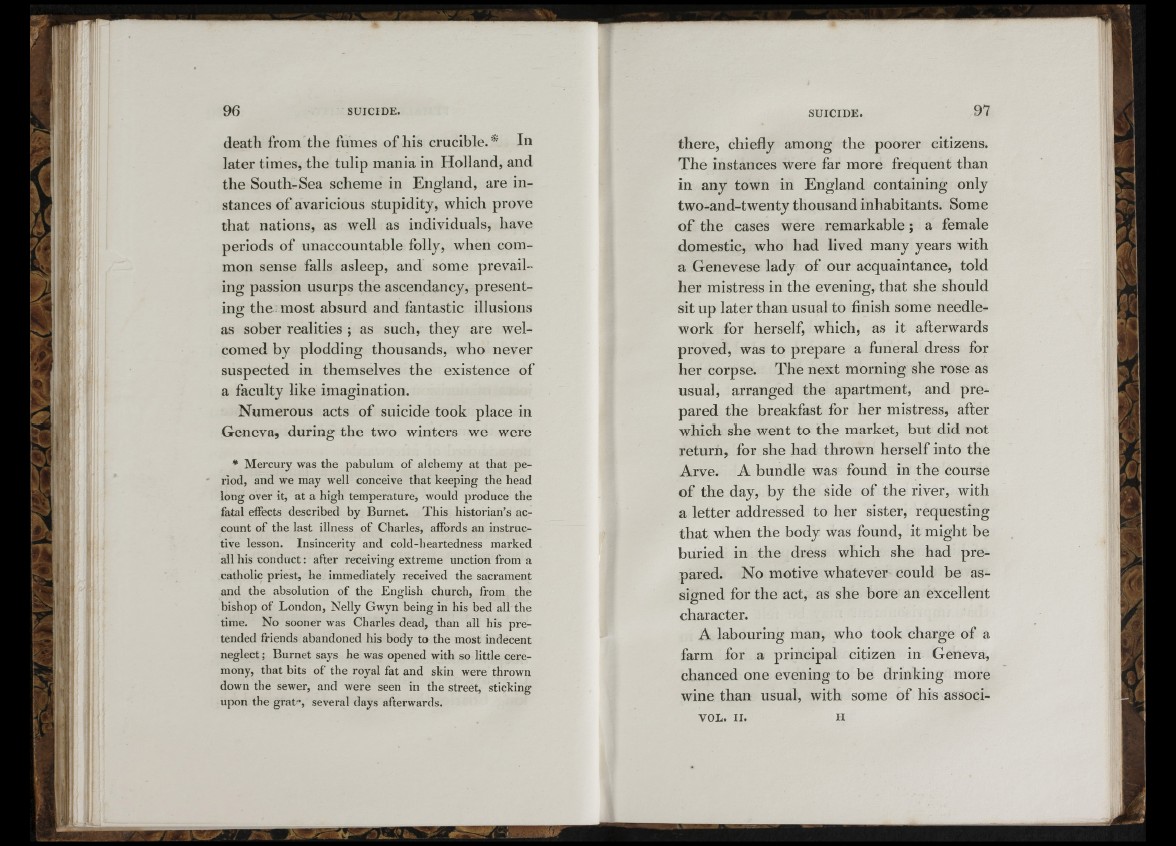
J
death from the fumes of his crucible.'^ In
later times, the tulip mania in Holland, and
the South-Sea scheme in England, are instances
of avaricious stupidity, which prove
that nations, as well as individuals, have
periods of unaccountable folly, when common
sense falls asleep, and some prevailing
passion usurps the ascendancy, presenting
the most absurd and fantastic illusions
as sober realities ; as such, they are welcomed
by plodding thousands, who never
suspected in themselves the existence of
a faculty like imagination.
Numerous acts of suicide took place in
Geneva, during the two winters we were
* Mercury was the pabulum of alchemy at that period,
and we may well conceive that keeping the head
long over it, at a high temperature, would produce the
fatal effects described by Burnet, This historian’s account
of the last illness of Charles, affords an instructive
lesson. Insincerity and cold-heartedness marked
all his conduct: after receiving extreme unction from a
catholic priest, he immediately received the sacrament
and the absolution of the English church, from the
bishop of London, Nelly Gwyn being in his bed all the
time. No sooner was Charles dead, than all his pretended
friends abandoned his body to the most indecent
neglect; Burnet says he was opened with so little ceremony,
that bits of the royal fat and skin were thrown
down the sewer, and were seen in the street, sticking
upon the grat'*, several days afterwards.
there, chiefly among the poorer citizens.
The instances were far more frequent than
in any town in England containing only
two-and-twenty thousand inhabitants. Some
o f the cases were remarkable; a female
domestic, who had lived many years with
a Genevese lady of our acquaintance, told
her mistress in the evening, that she should
sit up later than usual to finish some needlework
for herself, which, as it afterwards
proved, was to prepare a funeral dress for
her corpse. The next morning she rose as
usual, arranged the apartment, and prepared
the breakfast for her mistress, after
which she went to the market, but did not
return, for she had thrown herself into the
Arve. A bundle was found in the course
o f the day, by the side of the river, with
a letter addressed to her sister, requesting
that when the body was found, it might be
buried in the dress which she had prepared.
No motive whatever could be assigned
for the act, as she bore an excellent
character.
A labouring man, who took charge of a
farm for a principal citizen in Geneva,
chanced one evening to be drinking more
wine than usual, with some of his associVOL.
II. H